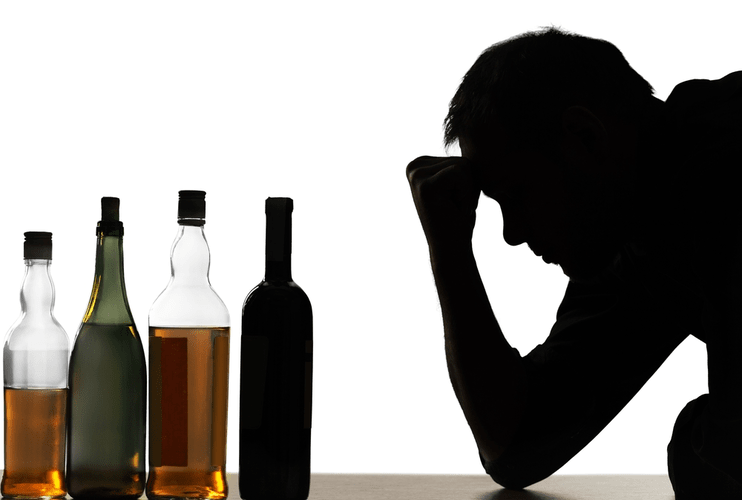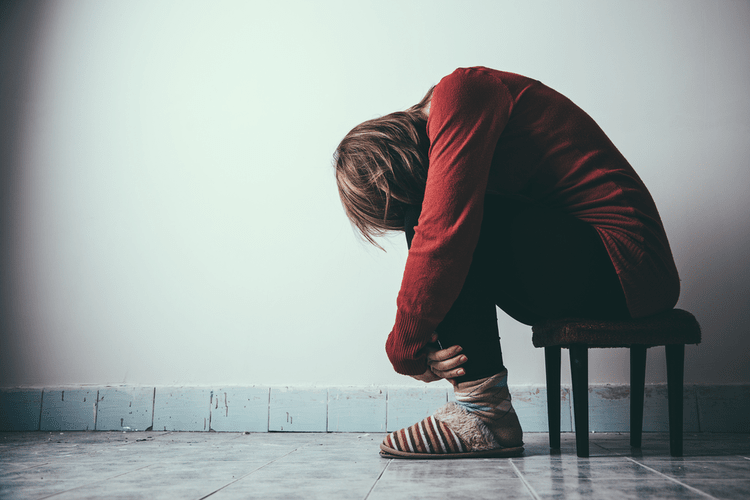Content
Give yourself the freedom of recovery by turning things around today. Heavy drinkers are likely to experience vomiting during detox, which leads to dehydration. Restoring electrolytes helps you feel better and reduces the risk of health complications.


When they suddenly quit drinking, the brain continues its hyperactivity, but alcohol no longer suppresses the effects. This can cause seizures and delirium tremens, a severe form of withdrawal marked by tremors and hallucinations. If you taper off alcohol slowly or with medical supervision, the brain has time to adapt without causing severe side effects. Ask all patients admitted to the hospital about drinking alcohol and be alert for signs of acute alcohol withdrawal in any patient. The best predictor of whether a patient will develop acute withdrawal is a past history of withdrawal. Signs of withdrawal usually occur within 48 hours of the last drink.
Common Symptoms Associated With Dt Include:
The brain compensates for the depressive effects of alcohol by increasing its activity. When people who are dependent on alcohol drink, they feel normal. To avoid severe alcohol withdrawal symptoms, you should slowly reduce alcohol consumption. Cautious tapering may take longer than medically supervised detox, but it will help you avoid major health problems. There are various levels of intensity in outpatient treatment programs, including basic outpatient therapy, intensive outpatient programs , and partial hospitalization programs .
Ibogaine for addiction: Research, benefits, and more – Medical News Today
Ibogaine for addiction: Research, benefits, and more.
Posted: Fri, 14 May 2021 07:00:00 GMT [source]
In turn, families and friends are often informed of or unable to provide a loved one with the continual care and expertise required to manage the symptoms of alcohol or benzo withdrawal. In addition, a number of organizations and websites promise that at-home, self-supervised treatments can deliver rapid detox with low cost or effort. These programs recommend methods of tapering usage over a period of time, or even of using other drugs to help ease the symptoms of detox, which can compound the problem at hand. These programs make it seem that at-home detox is easy as long as one is careful, but they provide little or no supervision of the process. Early symptoms of alcohol withdrawal usually start about six hours after the last drink. Early symptoms include headache, sweating, tremors, vomiting and difficulty concentrating.
Treatment
The level of intensity is aligned with the severity of the alcohol use disorder. We publish material that is researched, cited, edited and reviewed by licensed medical professionals. The information we provide is not intended to be a substitute for professional medical advice, diagnosis or treatment. It should not be used in place of the advice of your physician or other qualified healthcare provider. Symptom-triggered therapy occurs when cross-tolerant medication is given only for symptoms of withdrawal rather than on a schedule. (See Table 3, p. 25.) Patients are monitored closely and assessed regularly using a tool such as the CIWA-Ar.


But while you can’t do the hard work of overcoming addiction for your loved one, your love and support can play a crucial part in their long-term recovery. Your chances of staying sober improve if you are participating in a support group like Alcoholics Anonymous, have a sponsor, or are involved in therapy or an outpatient treatment program. There’s no magic bullet or single treatment that works for everyone. Everyone’s needs are different, so it’s important that you find a program that feels right to you. Any alcohol addiction treatment program should be customized to your unique problems and situation. Partial hospitalizationis for people who require ongoing medical monitoring but have a stable living situation.
Alcohol Withdrawal Symptoms, Treatment, And Timeline
Detoxing at home usually takes longer because you should be cautious to avoid serious complications. Expect to feel some discomfort, including anxiety, sweating or irritability. If alcohol withdrawal cure you feel more severe symptoms, such as paranoia, increased pulse, or tremors sometimes called alcohol shakes, you should taper more slowly and consider seeking professional help.


Successful treatment of AWS is the initial step toward long-term abstinence. Abstinence is unlikely if the patient does not enroll in a long-term treatment program.9Programs could include group meetings, individual counseling, and long-term medications to reduce the risk of relapse. Doctors prescribe these medicines to reduce the likelihood of seizures during alcohol withdrawals. Doctors often choose these drugs to treat alcohol withdrawals. DTs is the most dangerous alcohol withdrawal symptom, and it will generally appear hours after ceasing alcohol intake. DTs can involve severe hallucination, heavy perspiration, an abnormally fast heart rate, high blood pressure, fever, and agitation. Without the proper means to treat DTs, these symptoms can lead to heart attack and death.
Alcohol Withdrawal At Home: Tips, Dangers, & What To Expect
Restraints should be avoided, however, may be used as required in order to prevent injuries due to agitation or violence. Electrolyte imbalances must be promptly corrected after investigations. Vitamin B1 supplementation helps to prevent Wernicke’s encephalopathy and should be given orally or intramuscularly to all the patients.
- There are many levels of care for addiction treatment and thus multiple treatment modalities a facility can employ.
- Yes, it can certainly be difficult to pull yourself off of the couch or out of bed, but a good walk can completely recharge your mental and emotional state.
- When the CIWA-Ar score is less than 10, or the SAWS is less than 12, medication dosages can be reduced and eventually discontinued.
- Therapy can help you identify the root causes of your alcohol use, repair your relationships, and learn healthier coping skills and how to deal with triggers that could cause you to relapse.
- The key point to remember is that’s never safe to self-detox from alcohol at home.
- Without the proper means to treat DTs, these symptoms can lead to heart attack and death.
The key point to remember is that’s never safe to self-detox from alcohol at home. People with the highest risk of complications from alcohol withdrawal are those who drink heavily in excess and those who have attempted to self-detox in the past. Alcoholism can affect the person struggling with it as well as their loved ones.
Addiction & Recovery
Detox handles the physical nature of addiction, but the mental part of it can take much more work. At home, you can somewhat easily access alcohol during withdrawals. At a Louisiana detox center, it’s a sober environment, which reduces your risk of relapse during this time to almost zero. This way, you can get your sobriety started on the right foot and help yourself beat substance abuse. Treatment of alcohol withdrawal syndrome should be followed by treatment for alcohol dependence. Treatment of withdrawal alone does not address the underlying disease of addiction and therefore offers little hope for long-term abstinence.


We also provide extensive support for clients looking to utilize inpatient rehab after detox and ultimately aftercare to ensure long-term sobriety. Finding an alcohol detox program, or an inpatient treatment facility, is something that can be difficult. Many people may not know exactly what they need to be looking for. No — never.Detoxing Alcohol detoxification from alcohol at home can result in very severe withdrawal symptoms. Facilities around the countries have same-day placement to ensure you stop drinking, safely, as soon as you’re ready. The third stage of alcohol withdrawal syndrome is the most severe. It typically occurs by day 3 or 4 and canlast up to 5 daysafter delirium sets in.
Psychological Effects Of Alcohol Detox And Withdrawal
The spectrum of alcohol withdrawal symptoms ranges from such minor symptoms as insomnia and tremulousness to severe complications such as withdrawal seizures and delirium tremens. Although the history and physical examination usually are sufficient to diagnose alcohol withdrawal syndrome, other conditions may present with similar symptoms. Most patients undergoing alcohol withdrawal can be treated safely and effectively as outpatients. Pharmacologic treatment involves the use of medications that are cross-tolerant with alcohol. Benzodiazepines, the agents of choice, may be administered on a fixed or symptom-triggered schedule. Carbamazepine is an appropriate alternative to a benzodiazepine in the outpatient treatment of patients with mild to moderate alcohol withdrawal symptoms. Medications such as haloperidol, beta blockers, clonidine, and phenytoin may be used as adjuncts to a benzodiazepine in the treatment of complications of withdrawal.
Mayo-Smith and Saitz and O’Malley formulated a treatment regimen in accordance with CIWA–Ar score severity . According to these authors, patients with mild withdrawal symptoms (i.e., CIWA–Ar scores of 8 or less) and no increased risk for seizures can be managed without specific pharmacotherapy. Successful non-pharmacological treatments include frequent reassurance and monitoring by treatment staff in a quiet, calm environment. Patients who experience more severe withdrawal (CIWA-Ar scores ≥ 8) should get pharmacotherapy to manage their symptoms and lower the risk of seizures and DT’s. The benzodiazepine equivalents for 5 mg diazepam are 25 mg chlordiazepoxide, 1 mg lorazepam and 15 mg oxazepam.
Can I Detox From Alcohol At Home?
Heavier use and longer periods of use tend to result in more severe withdrawal reactions. However, the response of a given individual may not be predicted solely on this information. You will also find information on spotting the signs and symptoms of substance use and hotlines for immediate assistance. Alcohol Alcohol use disorder affects millions of people in the United States. Learn more about the risks and how to get help.Drugs If you or a loved one is struggling with drug abuse, you’re not alone. Learn more about the most commonly misused drugs.Addiction Treatment Going to a rehabilitation program greatly increases your chance of long-term recovery. Learn more about your options.Addiction Resources If you have more questions about addiction, we’ve gathered resources to help you and your loved ones.





